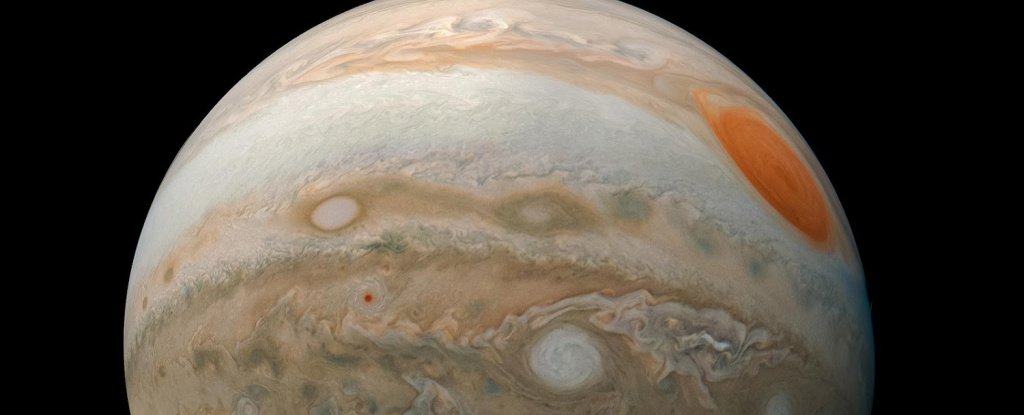
Jupiter's core is a bizarre mix of solid rocks mixed with a diffuse bubble of hydrogen gas. And the story of how it got that way has long eluded explanation.
But now scientists think they're on to something, suggesting that the gas giant absorbed another protoplanet during a head-on collision some 4.5 billion years ago when our Solar System was forming, according to Science News.
The hypothesis could finally explain why the planet's core is so diffuse and fragmented - and also shed light on the Solar System's earliest days.
A team of astronomers from Japan, China, Switzerland, and the US used data from NASA's Juno space probe to investigate Jupiter's structure and composition, according to research published Wednesday in the journal Nature.
They tested other possible explanations for how the inner core of Jupiter became so diffuse, such as gradual erosion caused by high-speed winds or the possibility that the core contained gas from the start.
But the ancient impact, the scientists found, is not only a plausible explanation, but may be the one that best matches observational data.
"Models of such a scenario lead to an internal structure that is consistent with a diluted core, persisting over billions of years," the team writes in the study.
If they're right, it means our Solar System was a violent place colossal protoplanets could crash into one another and even merge.
"We suggest that collisions were common in the young Solar System and that a similar event may have also occurred for Saturn, contributing to the structural differences between Jupiter and Saturn."
This article was originally published by Futurism. Read the original article.
Bagikan Berita Ini














0 Response to "Jupiter May Have Absorbed a Whole Other Planet Early On, Study Suggests - ScienceAlert"
Post a Comment